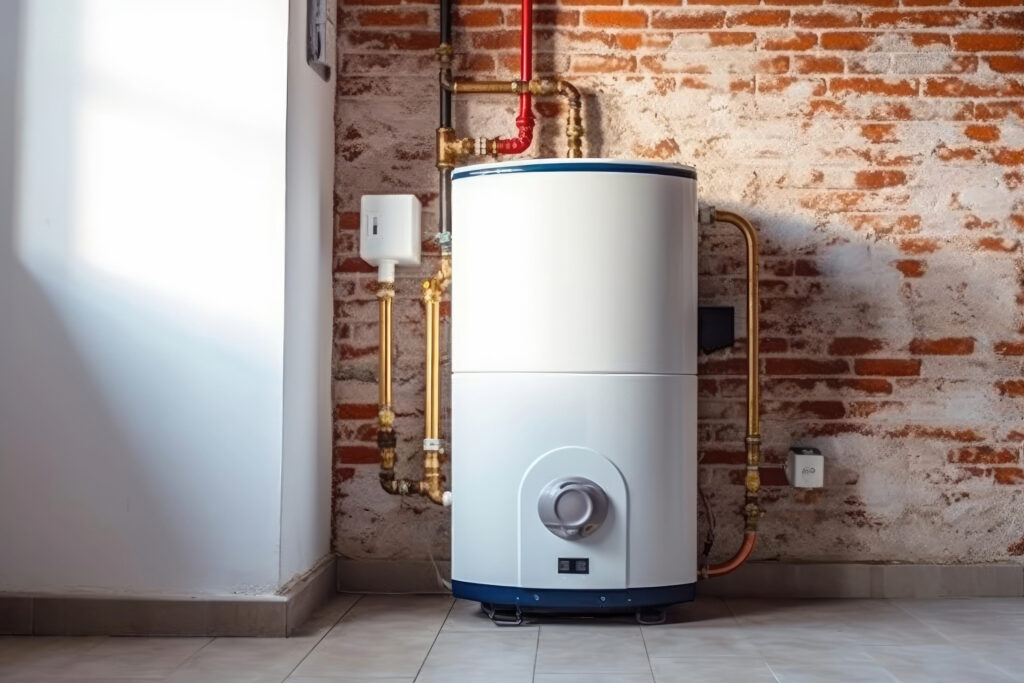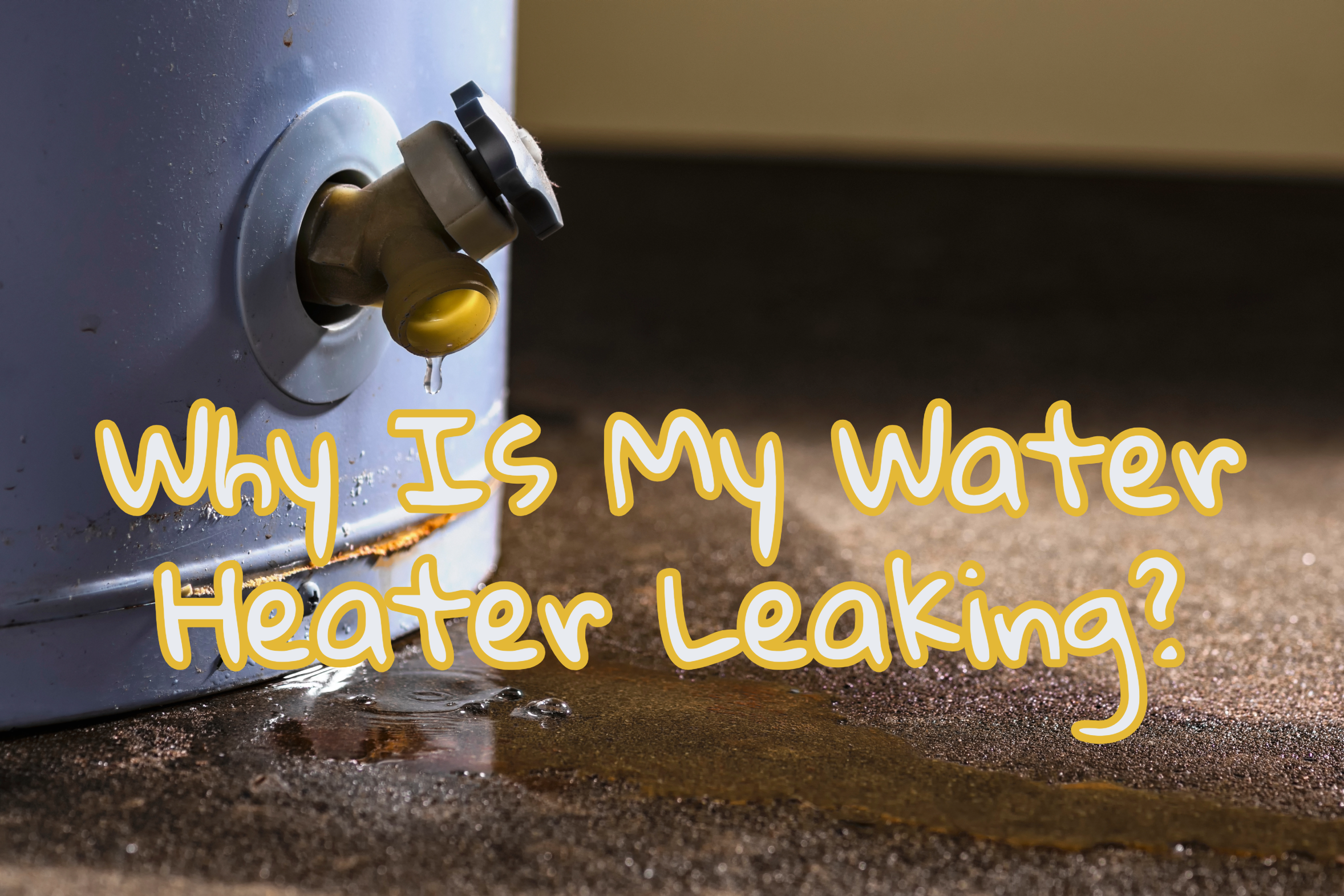A water heater leak is a situation no homeowner wants to encounter. But it can happen. If you’ve found yourself in such a situation, it can be frustrating as it not only not only increases utility bills but can also cause significant water damage. So, let’s explore together the potential causes of water heater leaks and the steps to address them, provided by your experts at Five Star Dayton Plumbing.
Before proceeding, please remember that safety is paramount. Always ensure the water heater is turned off before initiating any troubleshooting!

Try Checking for Loose A Hot or Cold Water Connection
A common cause of water heater leaks is a loose connection on the hot or cold water inlet and outlet pipes. Due to consistent use and temperature fluctuations, these connections may loosen, leading to water seepage. As a result, this often results in minor puddles around the heater or a slow drip from the pipes.
To troubleshoot, try checking the top connections of the heater. If you detect water or moisture, a loose connection might be the problem. Tightening it with a wrench could resolve the issue; however, be cautious not to overtighten to prevent further damage.
Try Checking for a Faulty Pressure Relief Valve
A malfunctioning pressure relief valve is another frequent cause of water heater leaks. This valve is intended to release excess pressure within the tank. If it is defective, water may leak out, indicating high tank pressure and posing a risk of the tank bursting.
To determine if the valve is the issue, carefully lift its lever. If it is functioning correctly, water will flow out. However, if it continues to leak after you release the lever, unfortunately, it may require replacement.
Try Checking for a Defective Temperature & Pressure Valve
Similarly, the temperature and pressure (T&P) relief valve can cause leaks. If the T&P valve is leaking, it indicates high water temperature or excessive tank pressure, both of which require immediate attention.
To troubleshoot this issue, examine the area around the valve for any signs of water. If moisture is present, a replacement may be necessary.
Try Checking for a Leaking Inlet Valve
Lastly, a damaged or improperly sealed inlet valve, which regulates the flow of cold water into the water heater, could result in a leak. Typically, a faulty inlet valve causes water to accumulate around the base of the heater.
To address this issue, inspect the inlet valve for any signs of damage or wear. It may be necessary to tighten or replace the valve.

Know When to Consult a Professional Plumber:
If you have exhausted all troubleshooting methods and your water heater continues to leak, it is advisable to seek professional intervention. Certain complications can be too intricate or hazardous for DIY repair. Professional plumbers can accurately diagnose the issue and offer a lasting solution, whether it involves part replacement, internal tank repair, or recommending a new water heater.
A water heater leak can cause significant stress and damage if not addressed promptly. Understanding common causes of leaks and the appropriate troubleshooting steps is essential for a DIY resolution. However, should the problem persist, please do not hesitate to contact us.
Our dedicated team is consistently prepared to offer dependable assistance to ensure your home remains safe and comfortable. Call Five Star Dayton Plumbing today at (937) 230-6506, or schedule an appointment online now by clicking here!


